#research methodology
Text
i think those 'Do You Know This Character Polls' are so funny
like obviously all of these polls are inherently biased. social media is not a way to gather Accurate Sociological Data. i can hear all my Quantatative Methods professors for sociology and anthropology screaming
but these polls will be like "Do you know this character?" [Picture of Samus Arun] [tagged 'Metroid'] and wow it sure seems like so many people know who Samus is! wild
even funnier when it's from like, an objectively smaller fandom, like a relatively niche book series, and looking at a poll you'd think they're mega popular
16 notes
·
View notes
Text




Forgot to post because I had so much stuff to do, so here we go. It's going to be a long one.
05-12-2022 54/100 DOP
*read in my VAT textbook on the train
*attended corporate tax class
*registered for a slot for the oral exam
06-12-2022 55/100 DOP
*watched a tax strategy lecture about transfer pricing and it was horrible
*did some administration for my internship
*went to the library to study the transfer of family businesses
07-12-2022 56/100 DOP
*was in the library all day studying inheritance law
08-12-2022 57/100 DOP
*went to international tax class
*studied tax strategy again in the library, but this time with a friend :)
09-12-2022 58/100 DOP
*went to VAT class
*made my part of the presentation of our research paper
10-12-2022 59/100 DOP
*worked on an assignment for the legal part of research methods class
11-12-2022 60/100 DOP
*worked on our presentation
12-12-2022 61/100 DOP
*had our presentation, it went well but the questions they asked were hard lol
*attended corporate tax class
*stressed about my internship contract and sent some e-mails
*studied transfer pricing
13-12-2022 62/100 DOP
*we had to solve a transfer pricing case during tax strategy class
*stressed some more about my internship
*finished my legal assingment and submitted it a couple days early (who am I??)
*submitted the peer assessment for our research assignment
14-12-2022 63/100 DOP
*had a one day student job cleaning communal fridges in the dorms and it was absolutely disgusting but it pays well
15-12-2022 64/100 DOP
*my stress level was at an all-time high because the deadline for my internship contract was approaching so I decided to call the coordinator because he didn't respond to my e-mail
*eventually got my contract signed by the coordinator and sent it to my internship place
*this all happened while I was sitting in the library trying to study tax strategy
16-12-2022 65/100 DOP
*went to VAT class, hopefully my last lecture in university!
*submitted my internship contract before the deadline :)
Decided to take the day off on the 17th because that stress was too much lol, I went to the Christmas market in Antwerp with my parents
18-12-2022 66/100 DOP
*did some exam planning, I'm home for 3 weeks now and in January it's exam time :(
#studyblr#mystudydiary#mystudydiary-blog#my post#studying#study place#exams#100 days of productivity#100 dop#tax strategy#corporate tax#research methods#research methodology#international tax#vat#value added tax#assignment#internship#december 2022#student job
66 notes
·
View notes
Text
39 notes
·
View notes
Link
4 notes
·
View notes
Text
4 Scales of Measurement in Research
4 Scales of Measurement in Research
The scales of measurement refer to the relationship among the values that are assigned to the attributes for a variable. Scales of Measurement are so important that, first, in the sense that knowing the level of measurement helps you decide how to interpret the data from that variable. When one knows that a measure is nominal, then this indicates that the numerical values could be just short…

View On WordPress
7 notes
·
View notes
Text
Be honest…do you procrastinate starting a research paper? Maybe you get overwhelmed with knowing where to start. Maybe you have so many ideas that it’s difficult to narrow your focus to one.
If this sounds like you know that you’re not alone! There are Student Researchers at every institution who a struggling to get started on this complex task! Fortunately, there’s a simple solution!
My time tested and proven course has already helped more than 500 students successfully start their research paper, project or proposal! Let me help you “get off of the struggle bus” and get on with education!
If you start this weekend, I guarantee you will have a clear, compelling and complete outline to build your research paper on! That’s a 100% Money Back Guarantee, you have nothing to lose and everything to gain! So the only question is, what are you waiting for?
#education#highered#research#college#educación#teaching & learning#college success#writing#dissertation#research title#data#strategic learning#teach#teaching college#academic#analysis#college professors#research topic#research methodology#research outline
3 notes
·
View notes
Text
And now, ladies and gentlemen, the moment you've all been waiting for ... the first to-do list of graduate school!
*thunderous applause*
Research Methodology
1. Read something from Music Research: A Handbook. (This book basically lists a lot of decent sources that act as starting points in research. I forsee this being as good of an investment as the Turabian handbook.)
2. Do a comparison of entries from two different dictionaries on the same topic. (We did a similar exercise in our first class last Monday and it was a good time.)
3. Page through the scholarly journals provided in the graduate lounge. (I had a good time with that assignment, too, even if the graduate lounge was freezing cold.)
Music in Brazil
4. Do the readings. (We had two. I need to look over them again.)
5. Write a 250-word response to the readings. (I was working on this in the library right before it closed last night.)
Practice
6. Some ... choral repertoire. (I will hopefully be able to share some good news in a week or two. For now, just understand that I DO have some things to practice.)
Adulting in General
7. Go to the grocery store. (I no longer need food.)
You may notice some of the tasks are already done. I was a bit behind in posting this -- sorry about that.
#amy rambles#amy's to do list#research methodology#music in brazil#piano practice#adulting#catholic university of america#cua#benjamin t rome school#musicology#music major#okay#alrighty#here we go#we're diving in here
3 notes
·
View notes
Link
#Research Proposal#Research Topic#Synopsis#Thesis#Dissertation#Implementation#Research Article#Analysis#Research Paper#Review Paper#Systematic Review Paper#Biblometric Analysis#Problem Formulation#Abstract#Literature Review#Research Methodology#Questionnaire#Journal Publication#PHD Meeting Guide
4 notes
·
View notes
Text
5 Methods of Data Collection for Quantitative Research
Discover five powerful techniques for gathering quantitative data in research, essential for uncovering trends, patterns, and correlations. Explore proven methodologies that empower researchers to collect and analyze data effectively.
#Quantitative research methods#Data collection techniques#Survey design#Statistical analysis#Quantitative data analysis#Research methodology#Data gathering strategies#Quantitative research tools#Sampling methods#Statistical sampling#Questionnaire design#Data collection process#Quantitative data interpretation#Research survey techniques#Data analysis software#Experimental design#Descriptive statistics#Inferential statistics#Population sampling#Data validation methods#Structured interviews#Online surveys#Observation techniques#Quantitative data reliability#Research instrument design#Data visualization techniques#Statistical significance#Data coding procedures#Cross-sectional studies#Longitudinal studies
0 notes
Text
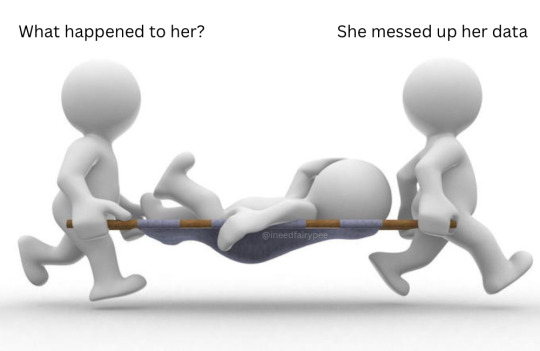
Data coding gone wrong
#student memes#uni memes#university memes#student life#dissertation#dissertation memes#student#dissertation life#data analysis#psychology student#university#psych student#uni life#research project#final year project#statistics#university life#university student#spss#research memes#research life#regression#correlation#research methodology#statistical analysis#qualtrics#research study#ineedfairypee#fairypeememes#I Need Fairy Pee
0 notes
Text
Crafting a Compelling Background Context for Your Undergraduate Dissertation
Introduction:
In the realm of academic research, the background context of a dissertation serves as a critical foundation, providing readers with essential insights into the motivation, scope, and significance of the study. In this blog, we explore the pivotal role of the background context in an undergraduate (UG) dissertation, offering practical tips for crafting a compelling introduction that sets the stage for your research journey.
Understanding the Background of the Research:
The background of the research, typically constituting a significant portion of the dissertation's introduction, elucidates the rationale behind the chosen topic and the formulation of the research question. It provides historical context, reviews previous studies, and presents the latest information relevant to the research problem.
Importance of the Background Context:
Effective engagement with the background context not only captivates readers but also underscores the researcher's contribution to the academic discourse. By establishing relevance and context, the background enhances the credibility and reliability of the dissertation.
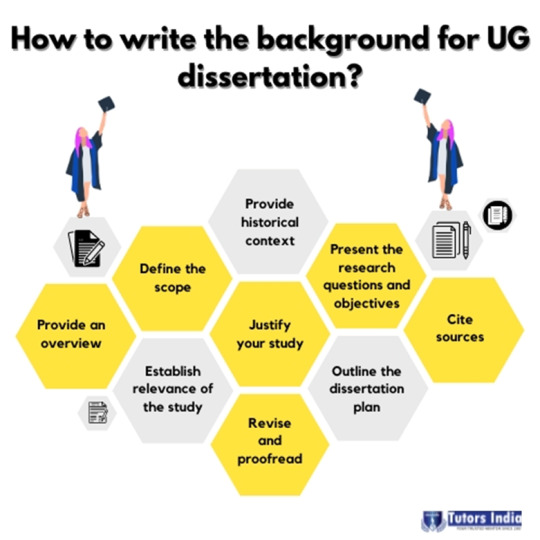
Guidelines for Writing the Background Context:
1. Provide an Overview of the Study:
Commence the background context by offering a succinct overview of the research focus. Clearly articulate the central theme and objectives of the study to orient readers towards the core subject matter.
2. Define the Scope:
Clarify the boundaries and scope of your research endeavor. Clearly delineate the parameters within which your study operates, ensuring transparency and coherence in your approach.
3. Establish Relevance:
Articulate the significance of your research within the broader academic landscape. Emphasize practical applications, theoretical contributions, and real-life implications, supported by relevant statistics and citations to bolster credibility (Gunawan, 2017).
4. Provide Historical Context:
Offer a brief historical overview tracing the evolution of the research topic. Synthesize key findings from prior studies to illustrate the progression of knowledge in your field and highlight gaps or unresolved issues.
5. Justify Your Study:
Articulate the rationale behind your research endeavor, elucidating its necessity and potential impact. Demonstrate how your study addresses existing gaps, advances knowledge, or offers fresh insights to the academic community.
6. Present Research Questions and Objectives:
Introduce your research questions or objectives, grounded in the identified gaps and broader context elucidated in the background. Ensure clarity, relevance, and alignment with the overarching aim of your study.
7. Outline the Dissertation Plan:
Conclude the background context by providing a brief overview of the dissertation's structure. Outline the research objectives addressed in subsequent chapters, offering readers a roadmap for navigating your study.
8. Cite Sources:
Acknowledge and properly cite all sources utilized in the background context, adhering to academic integrity standards. Ensure accuracy and consistency in referencing to validate the information presented.
9. Revise for Errors:
Thoroughly proofread and revise the background context to ensure clarity, coherence, and grammatical accuracy. Seek feedback from mentors or supervisors to refine and enhance the narrative flow.
Avoiding Common Pitfalls:
To maintain clarity and conciseness in your background context, avoid overloading it with excessive data, delving too deeply into previous research, discussing theories, lacking flow, or repeating findings unnecessarily (Horowitz, 2013).
Conclusion:
In summary, the background context serves as a cornerstone of your UG dissertation, providing the essential groundwork for your research endeavor. By adhering to the outlined guidelines and avoiding common pitfalls, you can craft a compelling introduction that engages readers and underscores the significance of your study. At Tutors India, we specialize in providing comprehensive dissertation assistance to UG students across various disciplines, ensuring error-free, plagiarism-free dissertations aligned with university guidelines.
#Best dissertation writing services uk#best thesis writing services uk#tutorsindia#dissertationwritinghelp#full dissertation help#research methodology#dissertation
0 notes
Video
youtube
Ask Study Coach: What is Qualitative Research
0 notes
Text
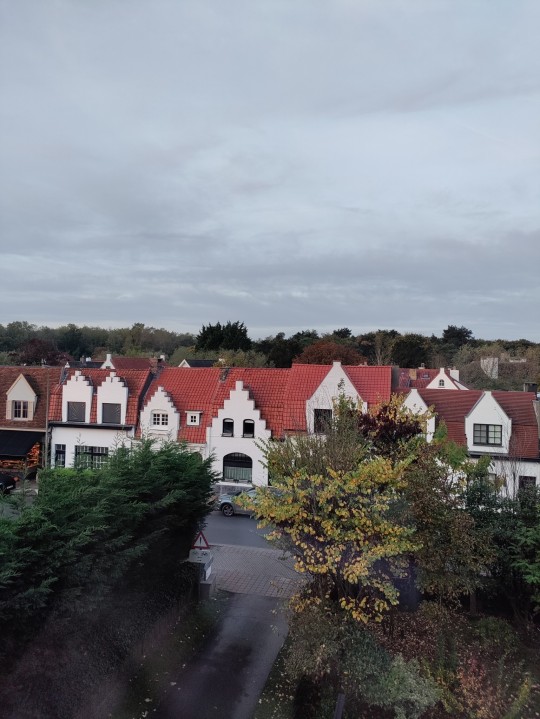
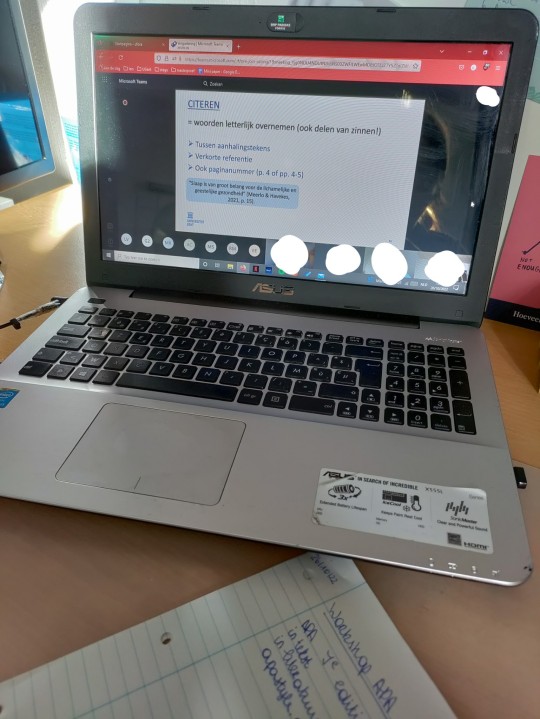
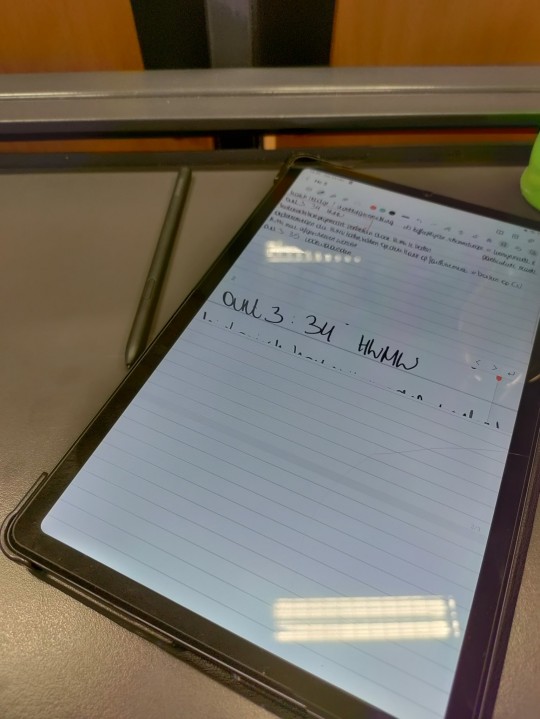

24-10-2022 15/100 DOP
*went to research methods class
*went to corporate tax
*met up with other people in our dorm building to get to know each other
*did some research for a paper
25-10-2022 16/100 DOP
*attended tax strategy class
*read some articles for a paper we need to write
*went to a meeting
26-10-2022 17/100 DOP
*went to school to work on a group assignment
*did a workshop on referencing in APA style
*prepared myself for the seminar
27 and 28-10-2022 18 and 19/100 DOP
We had a two-day seminar organised by a couple professors of the tax department. There were a lot of tax and accounting firms present as well. It was a bit of a competition to solve a case and present it in the best possible way (we only had classes for a month lol, other years the seminar was in december). We also had a lot of networking opportunities.
I learned a lot but it was very tiring to be surrounded by people 24/7. I took the weekend to rest so the 100 days of productivity resume on Monday :)
#studyblr#mystudydiary#mystudydiary-blog#my post#studying#study place#100 days of productivity#100 dop#research methods#research methodology#tax strategy#paper#research paper#seminar#tax seminar#october 2022#workshop#apa
28 notes
·
View notes
Text
Week 4: The Research Question
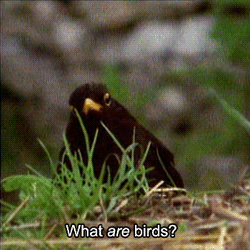
Trying to figure out my research question is a very tedious process. I feel as if I could continue to write endless questions and never come to the one that I want to answer. This is admittedly quite frustrating, so I have taken a different approach.
Developing the question, as stated before isn't an easy process. Although on the surface it seems quite straight forward:
Pick a topic.
Narrow the topic.
Ask some questions.
Pick a question. (Easier said than done).
Focus the question / Who, what, when, where.
youtube
My process went like this:
Pick a topic - Cinema + Mother Daughter relationship
Narrow the topic - How cinema can shed light on the Mother/daughter relationship.
Ask some questions - How do the media represent mother daughter relationships? How can cinema be used to effectively communicate the nature of a mother/ daughter relationship? Can cinema create a universal experience of the relationship? Can cinema create a solid foundation on which to build a free flowing thought bubble on said relationship? Can cinema be an effective tool in the self discovery of the mother/daughter relationship? (This is where the questions started becoming a little better). Can cinematic practise be an effective tool to research the foundations of the relationship between mother and daughter? Can cinematic practise be a tool in which to uncover the layers of a relationship between mother and daughter? Is the mother/daughter relationship a viable subject in which to research through cinematic practise? (Started going off track here). Is it ethical to have the goal of changing people's perspectives on their own relationships through cinematic practise? (Lost myself here, decided to stop).
Pick a question - After realising I had to backtrack, I also realised that I had lost the goal. I started then thinking, "What do I want my audience to feel like after walking out of my film?", this question allowed me to narrow down my initial goal, which led me to pick this question (slightly reworded): "Can cinematic practise be a tool in which to explore the layers of a relationship between mother and daughter?"
Focus the question - My decided question was slightly too vague. After some deliberation on the who/what/when/where, I landed on: "How can short form cinematic practise be a tool in which to analyse the layers of an ever evolving relationship between mother and daughter in modern Australia?" I say short form in the context of short films.
Although I seem to have come to a final question, I can't help but feel that it isn't entirely finished, and that my research will bring out other questions that I didn't know I had. I think the difficulty in cultivating a question within artistic research has a lot to do with this. Although I seem to know what I want my answer to be, this doesn't necessarily mean that there is only one question. It's tempting to try fit multiple questions into one, which could then either create very fragmented research that doesn't connect, or uncover a new area of research. I am more inclined to lean toward the first option.
One quote from the Magnus Andersson reading from this week stood out to me and gave me a bit of insight into my own creative practice research:
"The artist's research process must be informed by her knowledge as a practitioner." (Andersson, 2011)
Sound's pretty obvious, but in fact it has subconsciously given me permission to not have a full formed question in place, that my making of the project is going to inform my knowledge along the way, instead of already having an answer and trying to make my project fit around said answer.
Andersson, M. (2011). The Structure of an Artistic Research Question – paper presentation. Art of Artistic Research. https://moodle-sae-au.axis.navitas.com/mod/page/view.php?id=958249
[Laurier Library]. (2017, December 21). Developing a Research Question [Video]. Youtube. https://www.youtube.com/watch?v=1oJNO6PYZe4
#Youtube#research#information#education#research methodology#cinema#why#Artistic research#creativity
0 notes
Text
#research proposal format#research proposal example#research project proposal#research proposal content#phd proposal sample#research proposal structure#research proposal pdf#research proposal steps#intro of research#research proposal writing#phd research proposal#research proposal sample#research proposal writer#research proposal template#research proposal ppt#dissertation proposal sample#proposal formatting#phd proposal format#research methodology#how to write a research proposal#what is a research proposal#research proposal sample for phd pdf
0 notes
Text
Intellectual Property Rights (IPR)
Introduction to IPR:
Intellectual Property Rights (IPR) refer to legal protections granted to the creators or owners of intellectual property. Intellectual property encompasses creations of the mind, such as inventions, literary and artistic works, designs, symbols, names, and images used in commerce. The purpose of IPR is to encourage innovation and creativity by providing individuals and…

View On WordPress
0 notes